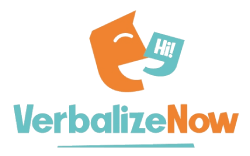Although learning English online can be pretty challenging, one of the best things about the language is the fact that it offers many, many ways to describe absolutely everything. This means that there is absolutely no excuse to be boring when describing something. Take the words “good” and “bad” for example. These two adjectives are two of the first words someone who is new to English typically learns in their online English classes. However, overusing them can make your writing sound boring and unimaginative. To prevent this, why not mix in some of the many synonyms these two words have? Let’s check out some of the more effective and interesting ways to say “good” and “bad” in English, split into “formal” and “informal” categories!
Good
Formal words you can use in place of “good” include:
- Fantastic, Great, and Amazing, which are typically used to describe good tangible or intangible objects, such as in “This vacuum cleaner is amazing.”
- Exceptional is commonly used for people who are very talented at a particular skill. For example, “she’s an exceptional teacher.”
- Conscientious and Kind refer to people with good characters and morals, as in “This veterinarian is a conscientious person.”
- Beneficial is a word that explains that a thing is good or helpful, like a beneficial program. You wouldn’t use it to describe a person; to do that, you would use benevolent!)
Slang is a common source of informal words, and “good” is no different:
- Cool is a classic, and refers to things that are stylish and fashionable, as well as expressing one’s happiness with a situation, like so:
Friend 1: “We got invited to a party tonight.”
Friend 2: “Cool!”
- Awesome is an old word that means “inspiring awe or wonder” but these days is used to describe anything that is great.
- Sweet is another alternative for “cool.”
- Lit is more modern, and is used in a similar way to “cool.” If you’re over 30, you probably shouldn’t use this.
Bad
Formal words you can use in place of “bad” include:
- Terrible, Awful, or Horrible are multi-purpose words that express a thing, person, or situation’s “badness.” To increase the intensity, add “really” to the front of the word— don’t add “er” or “est” to any of these.
- Substandard, Unacceptable, or Unsatisfactory are very formal words that you can use in professional situations when critiquing a situation or product.
- Abhorrent, Vile or Odious are used to describe things that make you disgusted or morally outraged.
- Evil or Despicable are used to describe people who are real-life villains with poor morals. Remember “Despicable Me?”
- Inept or Incompetent are words used to describe people that are really bad at their jobs. An official in charge of visas who is constantly losing people’s passports is inept.
Informal:
- Gnarly is a slang word that you’ll hear used to describe things that are ugly or unpleasant.
- Sucks is a very informal verb that is used to express displeasure, and is always used with words like “this,” “that,” or “it.” “That sucks” is a common lament you’ll hear from people of all ages. Since it’s a verb, use the adverbs “really” or “totally” to increase its intensity.
A Word About Superlatives
Don’t forget the rules for creating superlative adjectives! Adding “er” to most adjectives will increase their intensity, like in “fast” and “faster.”
If something is the “most fast”, then you’d add “est” to make it “fastest”.
However, these rules don’t work for good or bad. There is no “gooder” or “badder.” Instead, we do this:
| Good | Bad |
| Better | Worse |
| Best | Worst |
We told you that there were a lot of ways to describe things in English! Don’t forget: these are just a few of the many, many options you have, so don’t be afraid to do your own research and see if there are other words you like even more.
Verbalize Now is an online business English school that specializes in one thing: preparing you for an awesome new career in an English speaking office. If you’re ready to take your English skills to the next level, contact us today.










